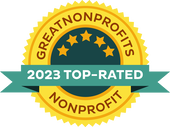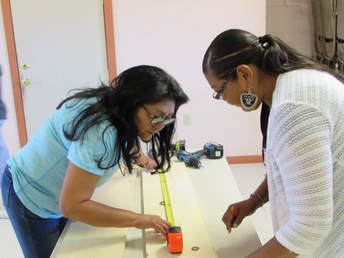 Thanks to funding from APS, we delivered another successful Women’s Do-It-Yourself Home Repair Workshop to 14 Hopi and Tewa women in Kykotsmovi this June. The class is so popular that it quickly filled up to capacity with only word-of-mouth advertising. In fact, there was so much interest, we created a waiting list and are now looking for additional funding to offer the class again this fall. The first day of the class was spent in the classroom learning about tool and construction safety, how to take measurements, and some basic carpentry skills. The ladies each constructed a wooden toolbox to practice their skills and to carry the $200 worth of tools that each student received upon completion of the class. The second day of the workshop was spent at one student’s home in the nearby Village of Bacavi. The 14 students, 2 professional weatherization experts from Cozy Home LLC, and 2 instructors from Red Feather, visited Melva Calnimptewa’s home to learn how to perform real and practical home repairs. The projects not only provided an opportunity for the students to learn, but were also a tremendous benefit to Melva and her family. Among the projects completed, we replaced the decking on a wheelchair ramp, fixed her broken front stairs and handrails, put up a large shade screen to block the afternoon sun from entering the main living area, repaired a roof leak, replaced some damaged drywall, and sealed numerous air leaks throughout the home. The next day when asked whether the shade screen was helping, Melva said it was a little difficult for her to notice, because the temperatures that day were well over 100, but that all the neighborhood dogs were now sleeping on her shaded porch. Photos courtesy of APS and Loren Anderson www.lorenandersonphoto.com
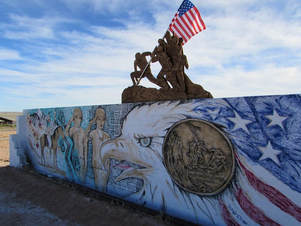 It’s been a busy spring and summer for Red Feather. We’ve been making a meaningful impact with our case management program, the Native Home Resource Network. The program attempts to help families with their housing needs, leveraging as many resources as possible that exist within the family and community before supplementing those with resources Red Feather and its network can locate outside the community. Please read Joe’s articles about some of the successes we are seeing with this program and others. This Memorial Day we took a small break from helping with housing to join our partner, Western Navajo Agency Veterans Administration, hosting an event to honor departed veterans. Native Americans have the highest percentage of people serving in the military - more than any other ethnic group in the United States. This is partly because of lack of jobs in their communities, but also because of their strong warrior traditions. There is a tremendous amount of respect and honor bestowed upon those that are willing to sacrifice their own lives for others. Thanks to a grant from APS, material donations from Home Depot, and labor and planning support from a group of Honor Riders and other members of the Tuba City community, we repainted the exterior of the Veterans office, spruced up the surrounding area, and hosted a memorial ceremony and lunch for Veterans and their families. The ceremony that began with a sunrise prayer and raising of flags, included over 200 names of deceased Veterans being added to a memorial wall. It was a day filled with emotional speeches. Tears could be seen on even the most stoic faces. With so many from these Native communities making the ultimate sacrifice - for us -it gives me even greater resolve to help with their urgent housing needs. My hope by sharing this is that it will compel you to ask yourself what more you can do. Would you consider putting Red Feather in your estate plans? If you are interested in discussing this, please don’t hesitate to contact me. Sincerely, Mark Hall
Executive Director 928-440-5119 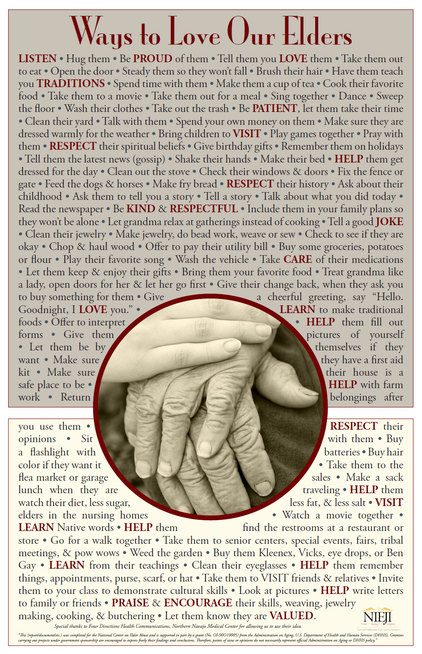 In our last newsletter, we highlighted Red Feather’s recent efforts to help elders live their remaining years in their own homes. The project is enabled thanks to a strong partnership we have with Dr Lisa Jane Hardy and her department at Northern Arizona Univertisty, the Center for American Indian Resilience. We are working together with the Hopi Office of Aging and Adult Services, Village Elder Programs, and interested community members to deliver a pilot of the program across Hopi. Funding was provided through a grant we won from Kendal Charitable Foundation. We are very honored and grateful to have been selected out of nearly 100 applicants for this grant. Our objectives for this pilot are to develop a training that teaches those taking care of elders how to assess homes for aging in place needs and instruct occupants on how to remedy basic problems. After the training, 24 households will receive comprehensive assessments along with $250 to spend on do-it-yourself home interventions, such as mobility and bathroom accessibility enhancements, or measures to improve indoor air quality. Families will also be provided with a series of educational resources that empower them to create healthier living environments. Red Feather plans to leverage our Native Home Resource Network for households that have repairs that go beyond DIY interventions and/or lack the resources to manage their own home repairs. Red Feather believes that community engagement is critical to developing effective programs. In a recent listening session with over 70 Hopi elders we asked about the most pressing housing needs they have that inhibit their ability to age in place. We also asked them to list things that help them to be happy and well in their homes. A few of the highlights from this discussion included: When elders think about the challenges they face they consider structural needs like accessible bathing and mobility ramps in addition to major repair needs like leaking roofs, mold remediation or stove replacement. Bathing can be difficult for all elders, but even more so for those living without running water or electricity in their homes. Walk-in showers, tall toilets, plumbing, grab bars, etc. are needed at public bathing facilities to provide increased independence and safety. Many elders talked about the social aspects of their lives, like having friends and family come to visit, being even more important to aging in place than improvements to the home environment. |
Archives
June 2023
Categories
All
|
|
Change your mind at any time by clicking 'unsubscribe' in any email you receive or by contacting us at [email protected]. We will treat your information with respect. For more information about our privacy practices please see our privacy policy. By clicking above, you agree that we may process your information in accordance with these terms.
In compliance with all GDPR requirements- you can request any data you’ve shared with Red Feather to be permanently deleted from our records by contacting us at [email protected]. |
WORKING WITH HOPI AND DINÉ
COMMUNITIES FOR HEALTHIER AND SAFER HOMES.
LAND ACKNOWLEDGEMENT: The Red Feather program office sits in an area that is sacred to over 14 local tribes, including the Diné, Hopi, Havasupai, Hualapai, Zuni, Pueblo, and Kaibab-Paiute peoples. Some of these nations are represented among the Red Feather staff, and some not. We humbly acknowledge this area’s Indigenous nations, original stewards and Native descendants who will forever know this place as home. We share a responsibility to recognize and acknowledge the people, cultures, and histories that make up our community. *Adapted from the Flagstaff City Council land acknowledgement developed by the Indigenous Commission

If you have a disability that limits your ability to access our facilities, please contact us so we can arrange for an alternative meeting location. See our ADA access plan here.
This institution is an equal opportunity provider. |

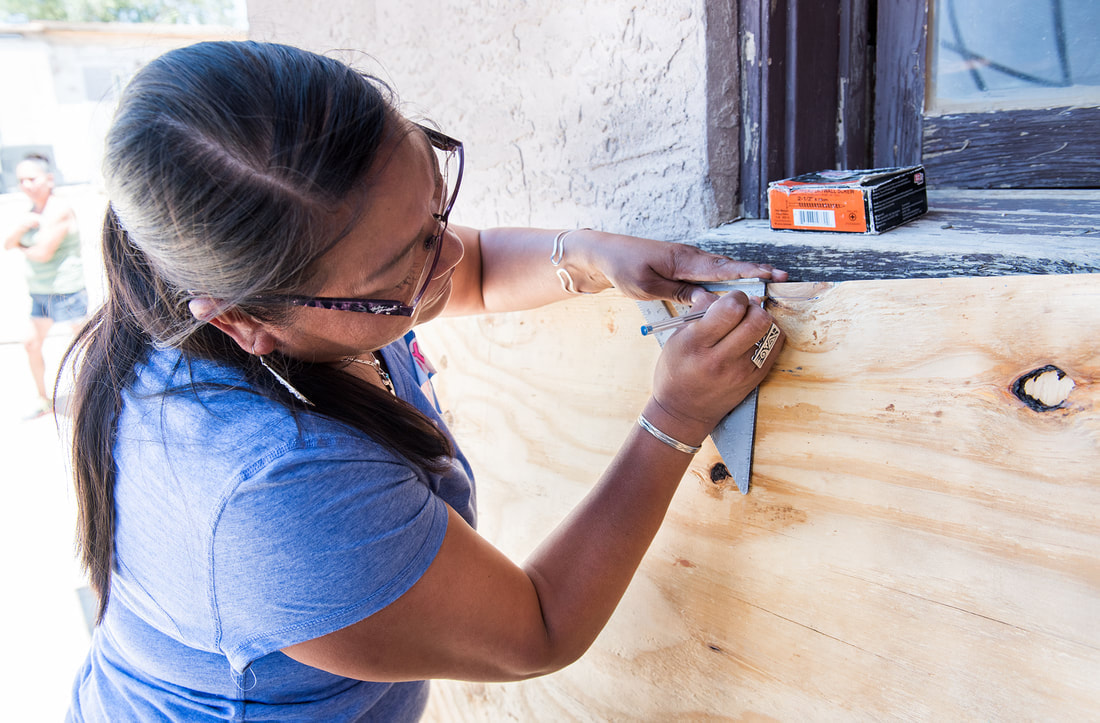
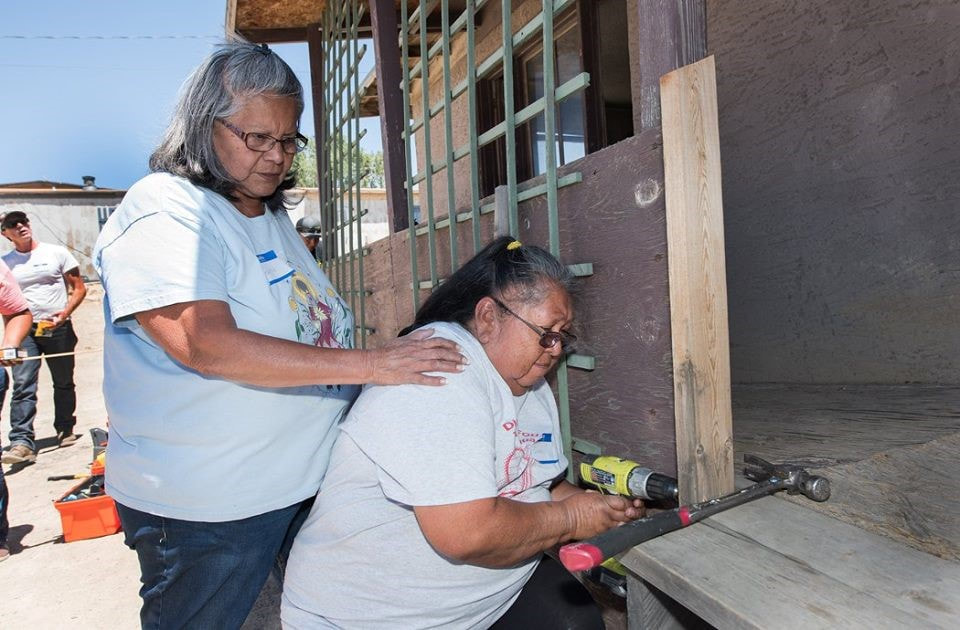


 RSS Feed
RSS Feed

